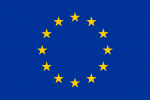Legal Barriers to the Development of Energy Communities in European Regulations
Igniting University Communities: Building Strategies that Empower an Energy Transition through Solar Energy Communities
Ana Belén Cristóbal,* Luis Narvarte, Marta Victoria, Luís Fialho, Zhe Zhang, Cristina Sanz-Cuadrado, and Matevz Bokalič
Universities as centers for innovation by nature can play a relevant role in serving as education hubs for citizens in energy, promoting individual and collective behavioral changes among community members. By collaborating with their own communities on the energy transition, universities can become more sustainable while providing firsthand experiences that can trigger new attitudes in their students and employees. In this framework, this article explores ways to create partnerships to establish energy communities and promote shared photovoltaic energy facilities in an inclusive manner, emphasizing the social impact of such actions. Four public universities in Aarhus, Évora, Ljubljana, and Madrid are challenged to explore the avenues for turning this vision into reality. In this article, the entire exploratory process is described and the various barriers encountered are highlighted.



